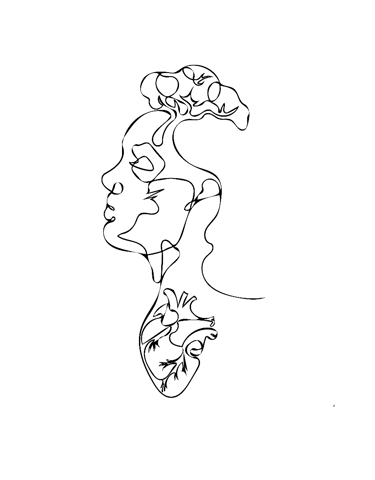Why Every Self-Help Book Sucks—And Why You Should Read Them All
As I started trying to turn my life around, I quickly turned to reading. However, the silver bullet I had been looking for was missing in the infinite space of self-help books. All the books I read seemed to miss one crucial ingredient: how to actually implement what I just had learned – a clear pathway out of my misery. When I first started out, I was looking for concrete answers to my questions: how do I stop myself from experiencing thoughts that drag me down? How do I deal with anxiety and negative emotions? How do I start acting differently? How do I start to enjoy life? And while none of the books I read provided concrete answers to these questions, they still played a crucial role in designing my own way out of my suffering.
Personally, I found my critique regarding self-help books to be especially true for the books that lean more towards the spiritual side of the spectrum. The concepts they provide are great, but at least for me, they proved to be highly impractical. More often than not, they promised a path to enlightenment, to true happiness and the ability to enjoy life at its fullest. Living in the moment, a life without regret – the ideas are often extremely appealing, the words sound wise. Yet, the books too often sadly fail to give actual advice on how to get there. Quite the opposite. Normally, a one-time realization is the cause to question one’s old and flawed perspective on the world. In this moment, one awakens and transcends beyond negativity. After this enlightenment, everything is different. Most of such books go on to describe the associated benefits with this renewed worldview in great detail. To change however, the simple moment of realizing that one has seen the world in a flawed manner is enough. Personally, I experienced it differently. Simply reading a new perspective did not change my beliefs about myself. Just knowing some thoughts and fears I had, weren’t justified, did not cast away negativity nor anxiety. Even though I knew it may serve me well, I could not adopt the proposed worldviews just from learning about them. At least for me, it was impossible to live by just from reading.
The more down-to-earth self-improvement books, which are less spiritual, suffer from this problem a bit less, mostly because they are more easily digestible. However, I still found these books to be generally lacking actionable advice on how to get from A to B. Compared to spiritual books, they do better in explaining why a certain worldview may be beneficial for mental health, well-being, happiness, success, motivation or whatever else the reader may be striving for. They are also very good at outlining how some habits or ways of thinking may be negatively impacting certain areas of a reader’s life. However, just by knowing how my habits weren’t doing me any favors, I couldn’t stop them. Just seeing flaws in the beliefs I held about myself did not make me change them – just like telling someone that is afraid of flights that planes are actually the safest means of travel will not be enough to calm them down.
Nonetheless, while reading alone did not present me with the solution to my problems, it still played an essential role in allowing me to gather the knowledge for creating my own way out. Today, I finally feel in control of my thoughts and emotions. In just two years, it feels as if I have become a totally new version of myself. Reading equipped me with the skills to get to this point. While it couldn’t provide a concrete pathway to this state, it helped me identifying all the different beliefs, habits and more that were holding me back from living the life I wanted, while providing me with a goal and the set of beliefs I wanted to hold. The concrete actions to get me there, however, I had to design myself. There may not have been one philosophy that changed my life as I had hoped for, but a mixture of everything I had read regarding psychology, philosophy, health, the human brain, and many other related topics helped me to develop an approach that worked for me. I found the missing piece – at least for myself.
I wish I could say that I've never looked back since that day on the bridge, but I have. This path has been a rocky one, with roadblocks, fallbacks, misery, and more than once the urge to just give up. Reading has been a crucial part of the progress I’ve made. Truth be told, without all the books I have read, the way out of my depressive state that I designed for myself would never have been possible. Each self-improvement book I read, missed out on living up to the promises it made, but together they gave me the tools needed to do it myself.


